
Design is broken. Young and not-so-young designers are becoming increasingly aware of this. Many feel impotent: they were told they had the tools to make the world a better place, but instead the world takes its toll on them. Beyond a haze of hype and bold claims lies a barren land of self-doubt and impostor syndrome. Although these ‘feels’ might be the Millennial norm, design culture reinforces them. In conferences we learn that “with great power comes great responsibility” but, when it comes to real-life clients, all they ask is to “make the logo bigger.”
This book probes the disillusionment that permeates design. It tackles the deskilling effects provoked by digital semi-automation, the instances of ornamental politics fashioned to please the museum-educational complex, the nebulous promises of design schools. While reviving historical expressions of disenchantment, Silvio Lorusso examines present-day memes and social media rants. To depict this disheartening crisis, he crafts a new critical vocabulary for readers to build upon. What this exposé reveals is both worrying and refreshing: rather than producing a meaningful order, design might be just about inhabiting chaos.
What was once a promising field rooted in problem-solving has become a problem in itself. The skill set of designers appears shaky and insubstantial – their expertise is received with indifference, their know-how is trivialised by online services, their work is compromised by a series of unruly external factors. If you see yourself as a designer without qualities; if you feel cheated, disappointed or betrayed by design, this book is for you.
Are you a bit depressed about design? This book might help you understand why. It may also make you laugh. With a lightness of touch, Silvio Lorusso provides an unflinching but well-reasoned discussion as to how design has become so ‘bigged up’ and what this actually means for its practitioners. After reading this book, design will never look the same to you.” – Guy Julier, author of Economies of Design
“What happens once design is a smokescreen and can no longer claim to be a blueprint for change? This is the question Silvio Lorusso puts on the table. How did form, no matter how cool and disruptive, become so futile and tired? Read this with caution: we can no longer design ourselves out of this painful realisation.” – Geert Lovink, author of Stuck on the Platform
“The disillusion of design is the disillusion of the world. This book is an essential read, not only for specialists. Because design affects us all, and because understanding where design fails helps us understand where design succeeds.” – Emanuele Quinz, author of Strange Design
“Italo-pessimist design critique at its best.” – Clara Balaguer, cultural worker and grey literature circulator
“Silvio’s work is more than just a book; it is a reflection of the industry’s very soul, expressing the conflict and paradoxes that shape current design.” – Angelos Arnis, strategic designer
“What Design Can’t Do is a colossal achievement of scholarship, synthesis, and, most importantly, honesty. Lorusso dismantles just about every Pollyannish framing of design, from the crassly professional to the most academic and rarefied. Lorusso’s lucid and refreshing frankness is rare in contemporary design discourse that is often polarised between the ethically challenged promotional sycophancy of the professional set and the speculative dreams in, and insulated by, academia. That alone makes the book a success.” – Eye Magazine
“Lorusso’s critique is sometimes brutal, but it never turns angry. He seems to genuinely care for the design discipline(s.) His book is honest and impeccably researched, calling upon the words of philosophers, design theorists, design historians and other thinkers to show how designers keep trying to reinvent themselves as self-anointed political activists, intellectuals of techniques (instead of technical intellectuals), slayers of capitalism, etc.” – Regine Debatty, blogger
“The author presents incisive thoughts, voluminous and diverse source materials curated, and clever ideas for his readers to consume, and importantly leaves it to them to make sense of and act upon. Reading WDCD is really more of an experience than a download.” – The Design Journal
“It’s as if ‘The Generic City’ section of S, M, L, XL has been rewritten by a despairing, millennial GPT.” – New York Review of Architecture
“Stop recommending this book to me. It’s an inconsistent, watered-down critique of design discourse. No analysis, just looking at symptoms – i.e. Capitalist Realism” – @ethicaldesign69
“For those interested in design, don’t read Silvio Lorusso’s book. It’s the kind of millennial loser’s tantrum that holds back progress by endlessly complaining and doing nothing.” – A guy on X
Designed by Federico Antonini.
Get the book from Set Margins’s website.
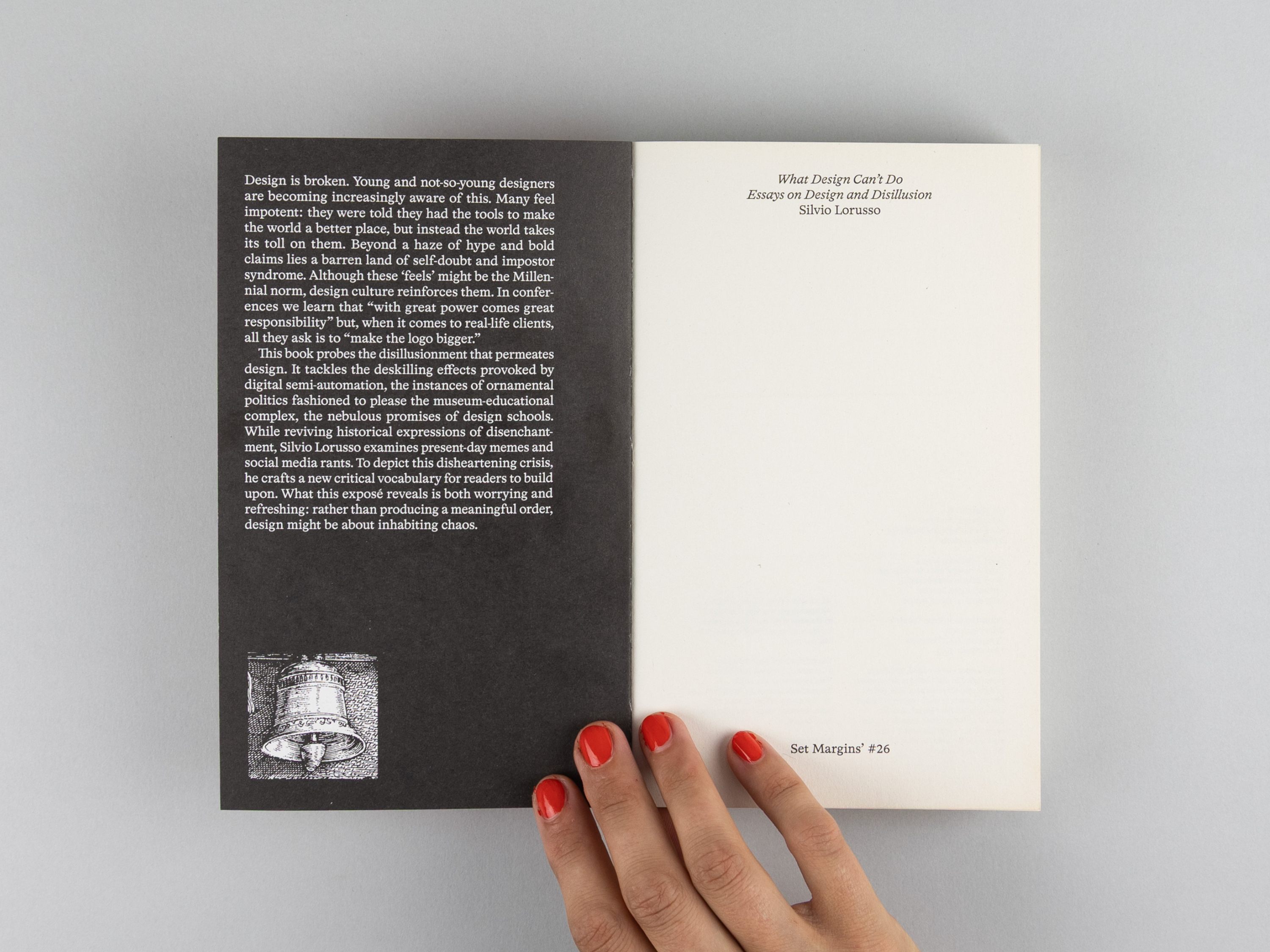
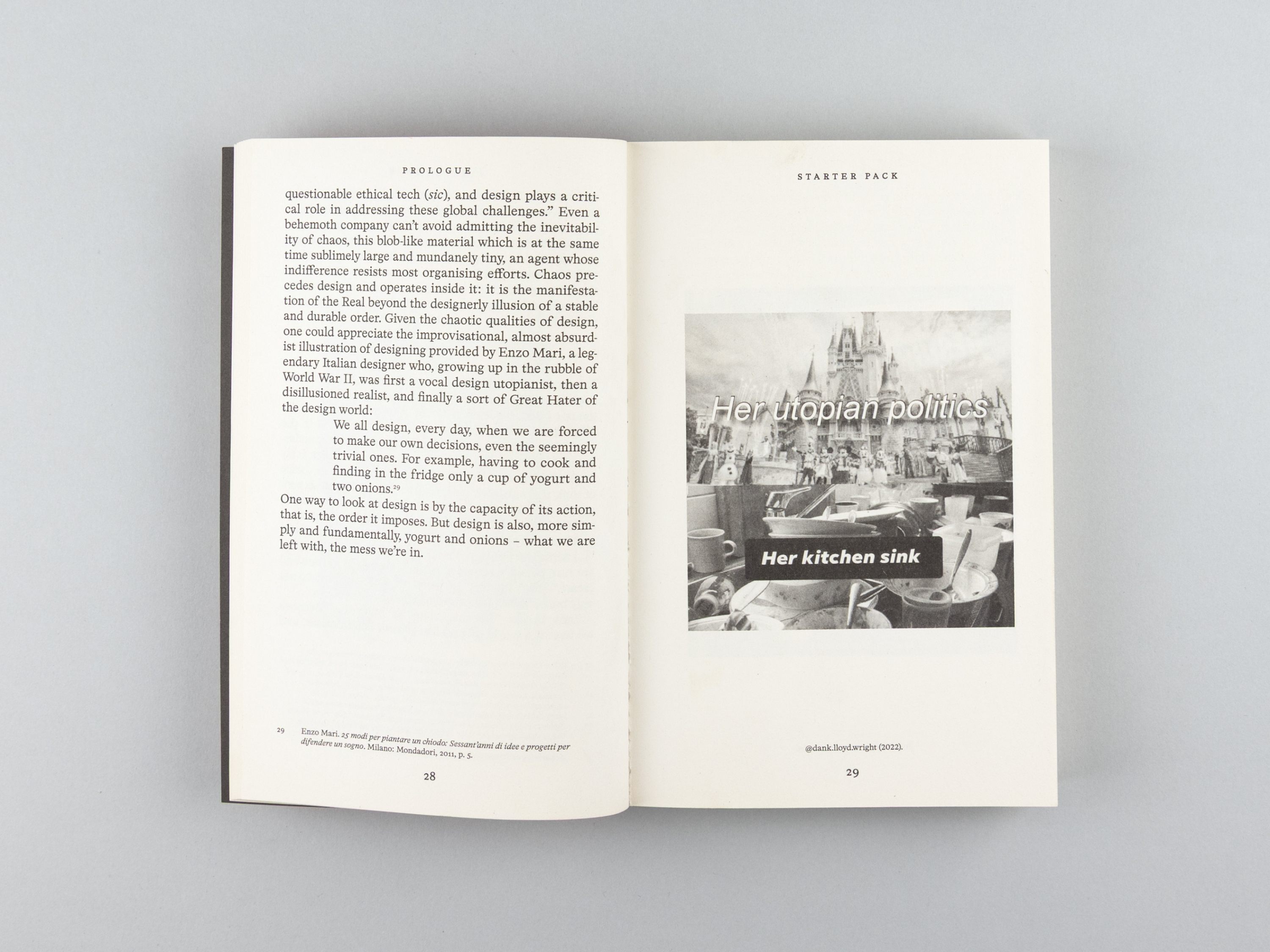
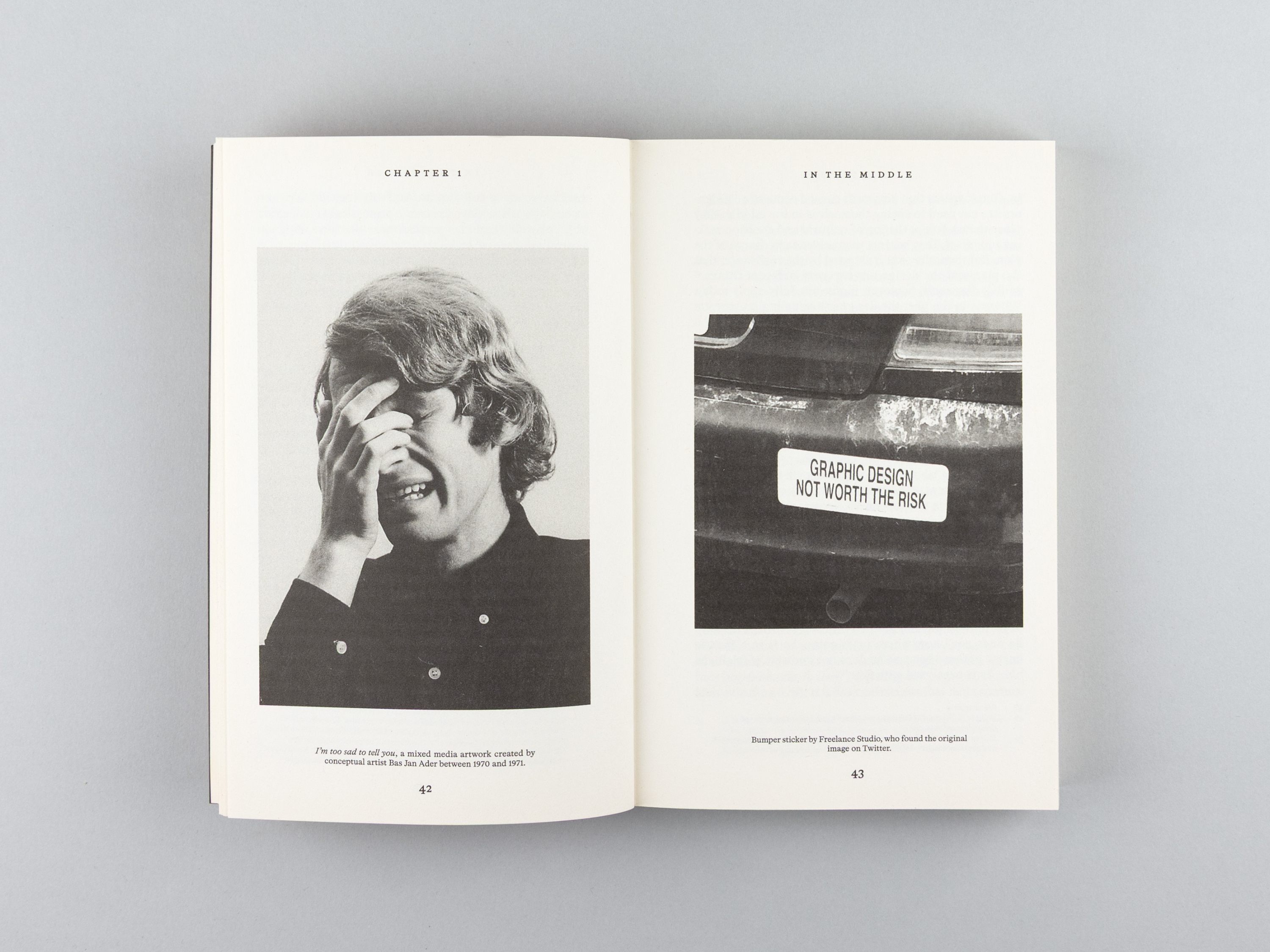
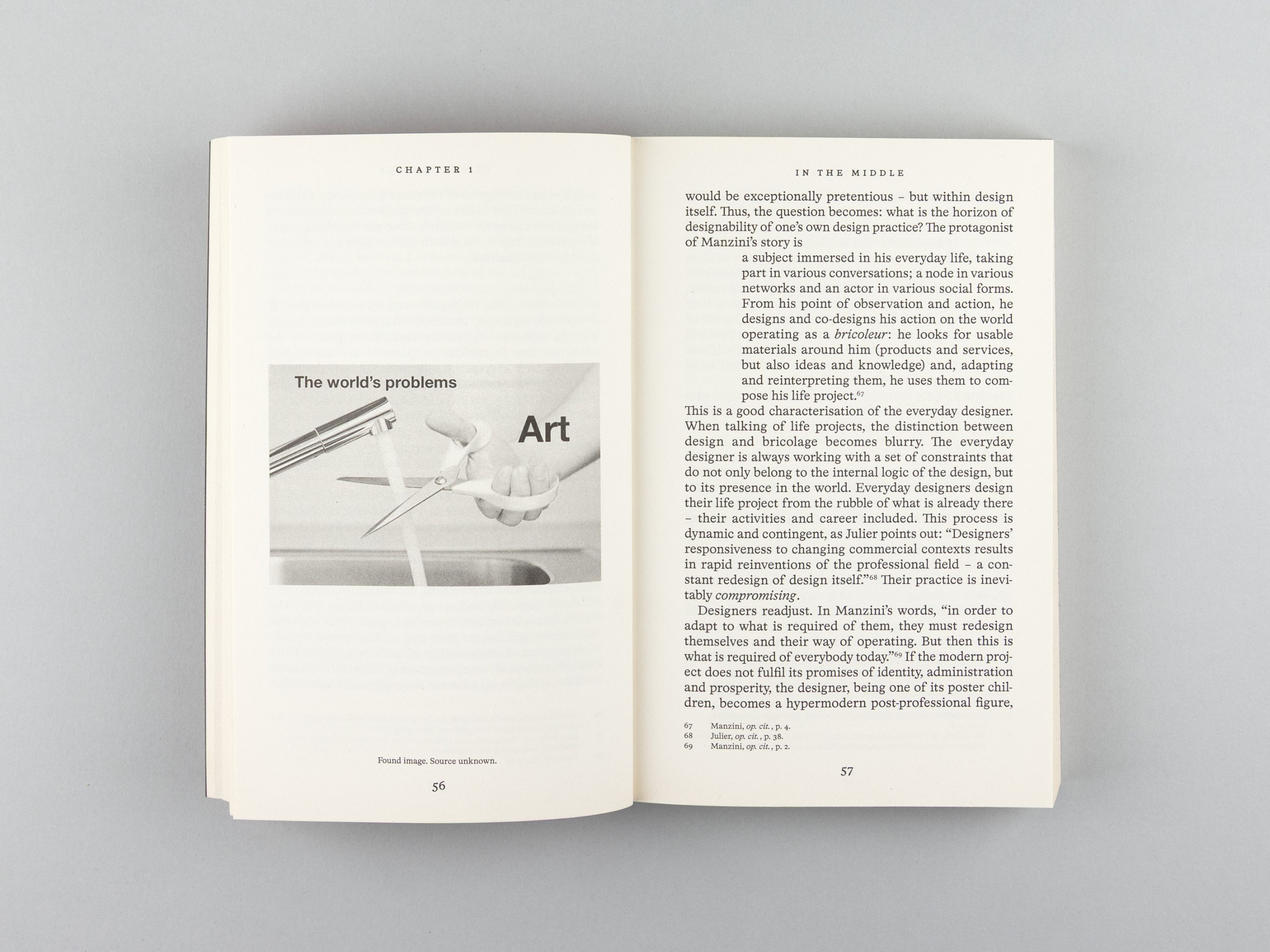


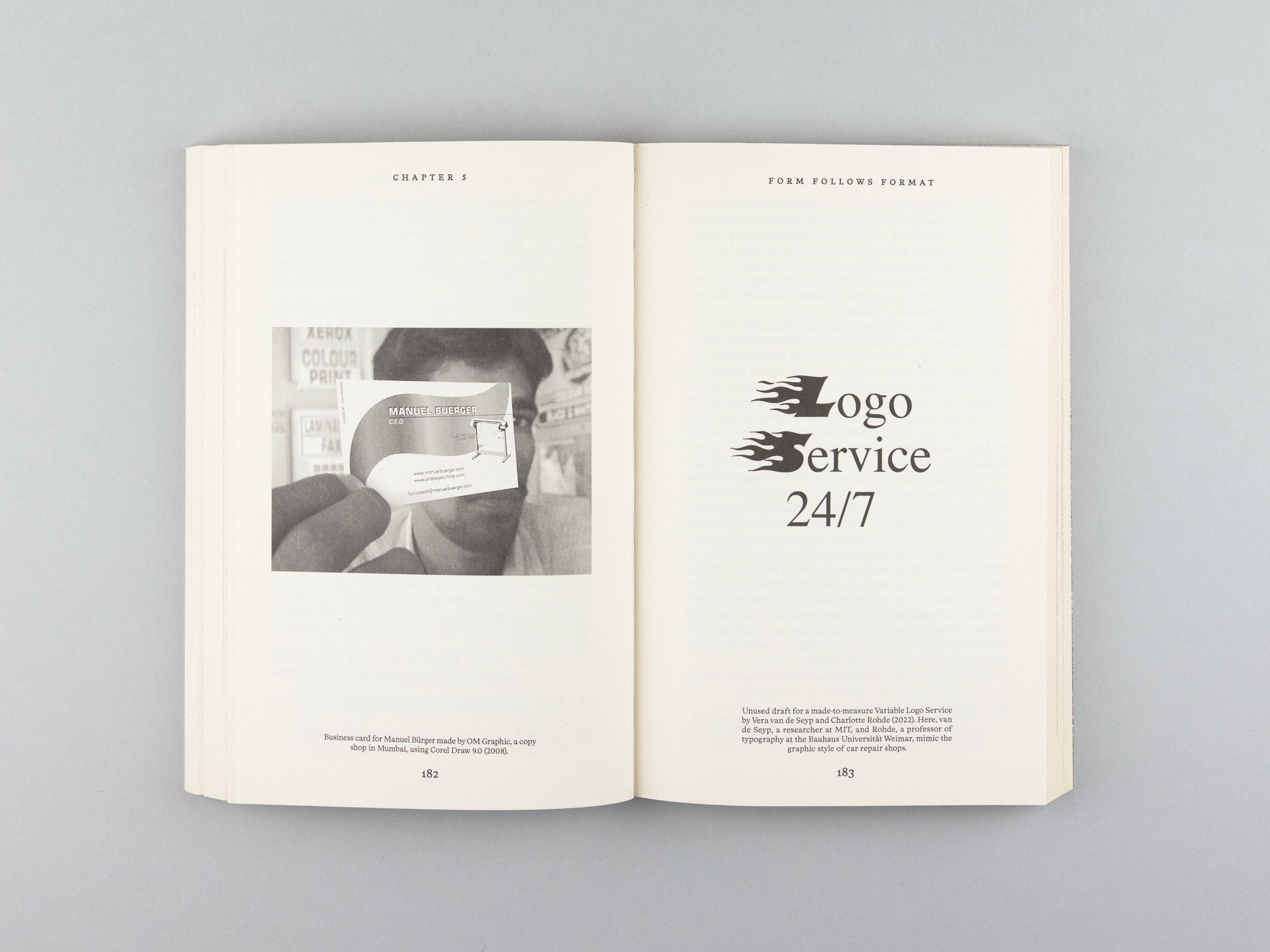


Photos and video by Annette Behrens.
Press, Reviews, Mentions, Interviews, Etc.
- “Bad Bunny en el museo” by Stef Silva, Retina
- “Konstfack + Kriminalvården = Sant” by Alva Roselius, Arbetaren
- “Reality Bites” by Eric Heiman, Eye Magazine #109
- “Twórcy wyróżnieni przez prestiżowy Klub Twórców Reklamy, których warto poznać i obserwować” by Karolina Bordo, K Mag
- “Democratizing Design: Hope or Just Another Beautiful Lie?” by Zulfiqar Islahqamat, Medium
- Review by John K. Knight, The Design Journal
- “AI isn’t design’s biggest problem” by Jarrett Fuller, Fast Company
- “Aa’s Summer Reads” by Zaina, Aa
- “The Disillusioned of the Earth” by Jorge Camacho, Medium
- “The New, High-Tech Objectification of Women” by Crimes New Roman, Youtube
- “Ironie oder Idealismus? Die Ambivalenz der visuellen Gestalter” by Christoph Künne, Docma
- “Graphic Design is my Passion/Prison” by Elizabeth Goodspeed, It’s Nice That
- “Stanza Abierta: Identidad e hibridación”, inaugural speech by Patricia Urquiola, Real Academia de Bellas Artes de San Fernando
- “What Design Can’t Do”, The Deep Dive #207, with Philip McKenzie
- “Christmas 2024: ten architecture and design books that would make great gifts”, Salone del Mobile di Milano
- What Design Can’t Do is included in the ADI Design Index 2024
- Review in Neural #75 by Alessandro Ludovico
- “On the Limits of Design” by Matthew Kiem, Diseña #25
- “In Another Life Another Being: On Design and the Wages of Decoloniality” by Jomy Joseph, Diseña #25
- “Design or Decline? A Decolonial Cease and Desist” by Bárbara Estreal and Marcelo Ramirez, Diseña #25
- “A Movement Practice: Eco-social Design in Grounded Context”, Common Knowledge
- “Design and Disillusion”, Near Future Laboratory podcast #89, with Julian Bleecker
- “Andu Masebo’s Love of Free Entertainment, Joining Materials + More”, Design Milk
- “Redescobrir a mão humana” by Hele Carmona, Recorte
- “Design Pessimism” by Theo Ploeg, Gonzo Circus #181
- “Examining the Dust on His Desk” by James Dyer, DAMN Magazine #87
- “More Public Relations” by Decentralized Agency, Real Review #15
- Review in We Make Money Not Art by Regine Debatty
- “The best design books of 2023”, Fast Company
- “AN collects a bevy of the best architecture-related books published in 2023”, The Architect’s Newspaper
- “Guida di sopravvivenza al design per designer: il nuovo saggio di Silvio Lorusso”, Exibart by Marco Petroni
- Review on Joint Frontiers by Angelos Arnis
- “Silvio Lorusso Recommends Six Books that Destabilize Design”, Scratching the Surface
- “Selbstüberschätzung?”, review in Page Magazine
- “Waarom kopiëren cool is en ‘what design can’t do’ – deze designboeken mag je niet missen”, review in Design Digger
- “Observed”, Design Observer
- “What Design Can’t Do unpacks the contradictions of being a designer”, Stir World
- “Dieci libri di design da regalare questo Natale”, Fuorisalone.it
- “Il libro che spiega perché è finita l’era del design salvatore del mondo”, Cielo Terra Design
- “I migliori saggi del 2023, da regalare a Natale”, Esquire Italia
- “What Design Can’t Do, saggi sul Design e la Disillusione”, WeVux
- “12 ‘Designer’, Sustainable and Clever Gifts for Less than 200 euros”, WeVux